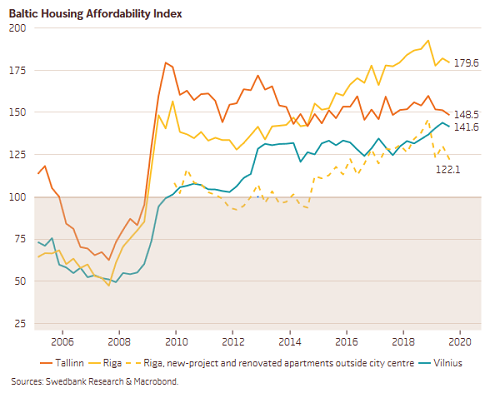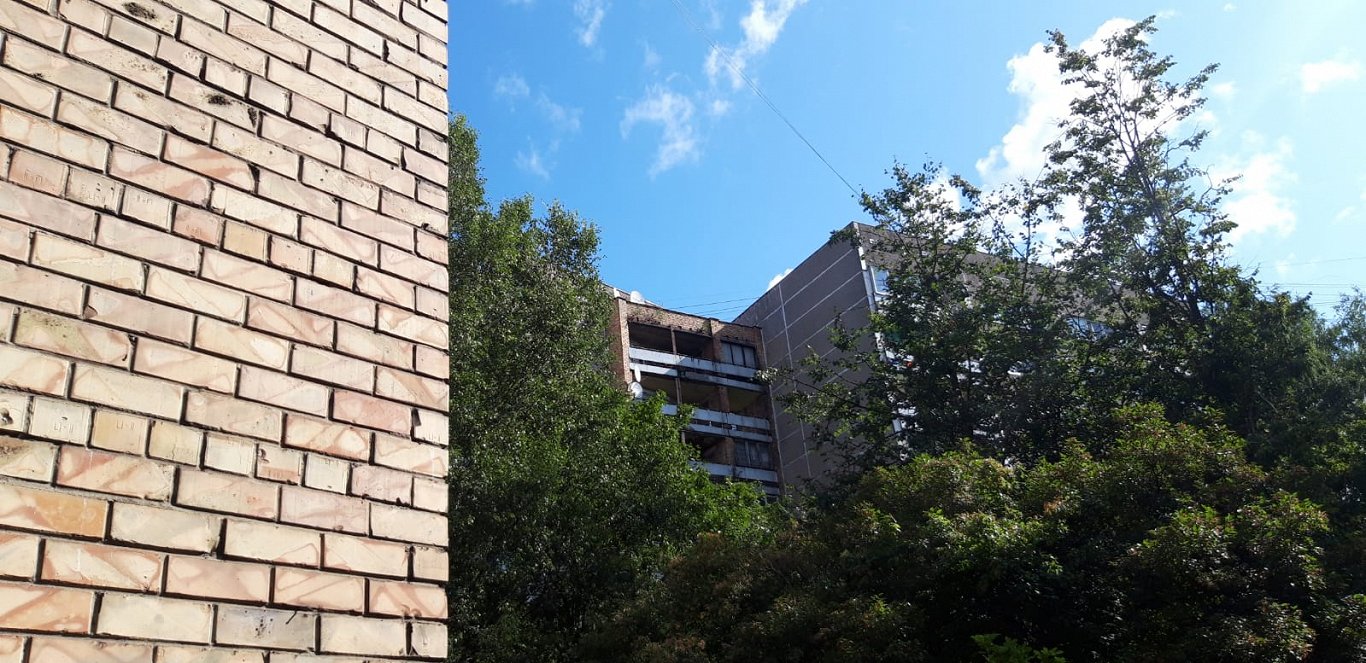The housing affordability index (HAI) is calculated for a family whose income is equal to 1.5 of average net wages with an average-sized apartment of 55 square meters. The HAI is 100 when households use 30% of their net wages for mortgage costs. When the HAI is at least 100, households can afford their housing, according to the established norm. The higher the index, the greater the affordability.

In Riga, the HAI lost 8.1 points to 179.6, compared with the same period last year, as faster apartment price growth and rising interest rates outweighed robust net wage growth. For new-project and renovated apartments, the HAI dived by 16 points, falling to 122.1 due to an acceleration of apartment price growth.
In Tallinn, the HAI plunged by 5.7 points in the third quarter of 2019, compared with the third quarter of 2018, and ended at 148.5, as net wage growth was slightly slower than an increase in apartment prices and interest rates.
In Vilnius, the HAI increased by 7.3 points to 141.6 in the third quarter of 2019 compared with a year ago. Strong net wage growth improved housing affordability despite both a growth in apartment prices and a pickup in interest rates.
The number of months needed to save for a down payment, which equals 15% of an apartment price, increased in Riga and Tallinn, but decreased in Vilnius. In Tallinn, the number increased by around 1 month and reached 28.6 months. In Riga, it was 23.6 months (34.7 months for new-project and renovated apartments in the suburbs) – an increase of approximately 1 month on average, and almost 4 months for new-project and renovated apartments. In Vilnius, it was 31.1 months, a decrease of about 2 months and 1 week.
In the third quarter of 2019, annual average price growth accelerated in all Baltic capitals. In Tallinn, annual price growth picked up to 7.9% as demand increased somewhat. In the third quarter, the number of transactions increased after a year of decline, and households’ confidence in purchasing or building a home improved for the second quarter in a row after a steep slowdown at the end of 2018, Swedbank said.





























